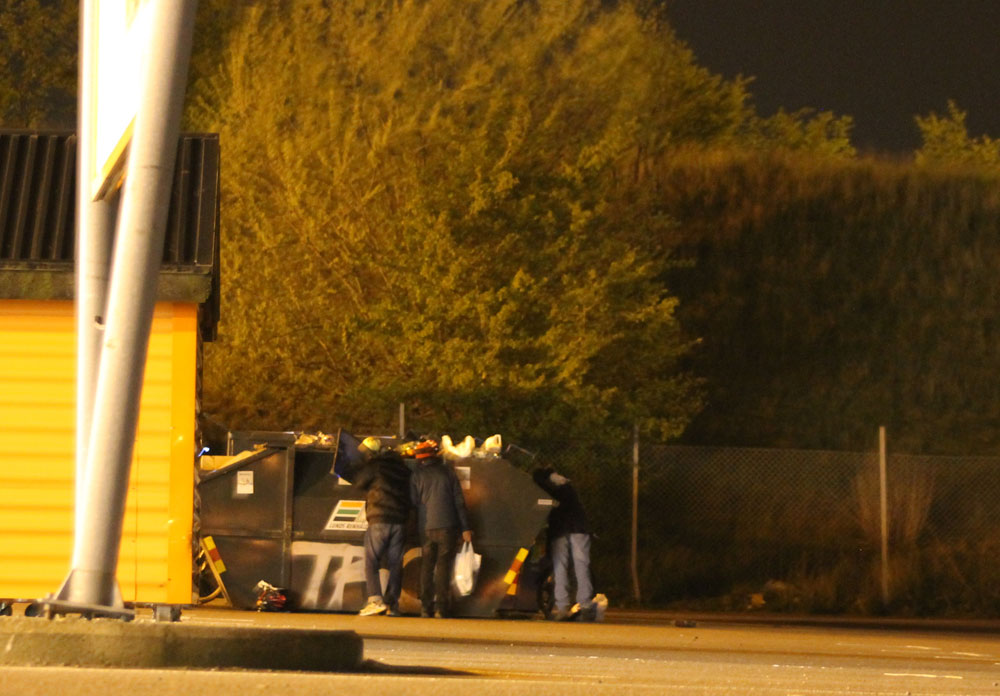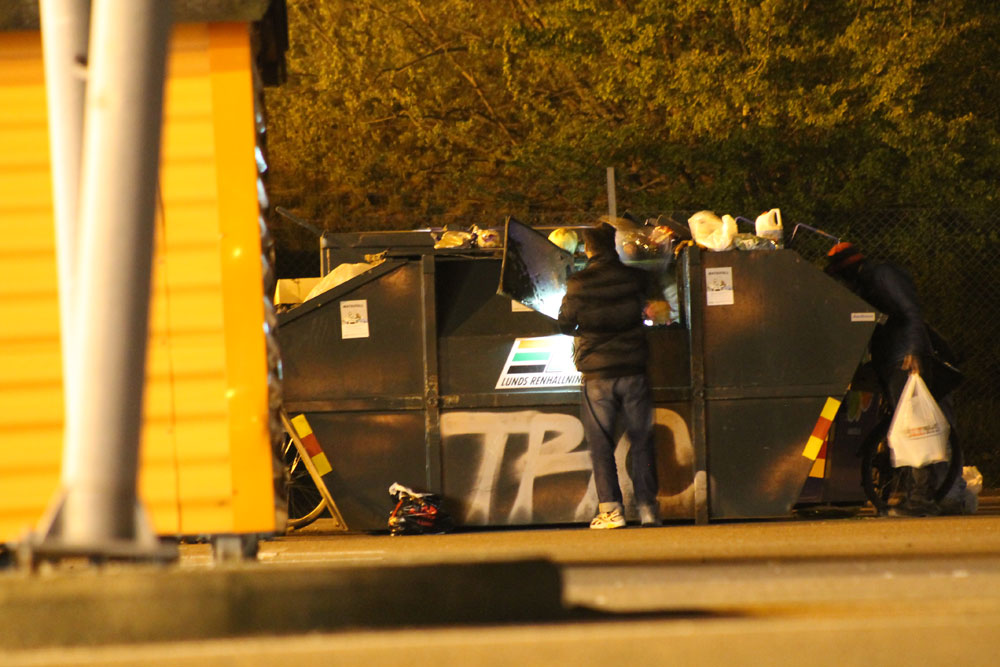Despite having some of the most generous student loans in the world, Swedish students still struggle to make ends meet. Some are forced to dumpster dive. For others, this is a an alternative way of life – spending less money and especially reducing waste.
It was just after 10 o’clock when we met, at the crossroads into one of the student accommodations. Zelda was conveniently just as punctual as I was.
Over the short distance to the supermarket, Zelda explains her past experience with dumpster diving. The Swedish student, studying a Bachelor’s in Political Science, said that, “Last semester, I used to come almost every day. I live only a few minutes away, and the supermarket always throws out a lot of food.”
Five people are already waiting in the store’s parking lot. Two older men argue about the legality of dumpster diving.
“You can’t just go through the garbage like that!” he said, angrily.
“We aren’t doing anything wrong, would you prefer to through all this food out?” the other answered.
In Sweden, dumpster diving is technically considered theft, but only as long the dumpsters are privately owned. In Lund, food waste thrown into municipal dumpsters belongs to the city. Dumpster diving falls into a grey legal zone, since what goes into the garbage isn’t controlled on site.
“I don’t think I’ve ever seen it this full,” Zelda tells me when we finally open the dumpster. Getting a glimpse inside is difficult, since more people have already shown up. Equipped with head lights, cleaning gloves, and poking sticks, these “divers”, as they called themselves, are regulars.
One diver, a German exchange student in Lund, is one of these. Also living close to the supermarket, he tells us that he “comes by every night, right before the shop closes at 10. After that, it becomes hard to get anything good. By diving, the only food I ever need to buy is meat.”
Finding meat in dumpsters is less common than finding fruits or vegetables, and much more sensitive to the weather. The warming spring makes it more dangerous to take meat from dumpsters, but during the cold winter months, meat is preserved and can still be eaten.
But this isn’t a problem for vegans like Zelda. On a regular dive like tonight, she climbs right in to look for food, and jumps out with a handful of onions, carrots, peppers, bananas, and a couple bags of toast. This was being selective, though, since the dumpster was still full.
“You should never really dig too deep,” she tells me,” since that food is usually older and all flattened.”
Not only that, but old, compacted foods carry a bigger risk of infection.
On our way out of the parking lot, we cross more divers on their way to find food. Driving not too far behind them was a Securitas car. Despite not doing anything illegal, Zelda tells me some of her friends have had problems with security guards, who were questioned and told that they couldn’t take what they called the store’s food. The police, on the other hand, have never bothered divers, unless they were doing something illegal.
Unlike other shops, this one leaves their dumpsters unlocked and in an open area beside the store. Other stores in Lund used to do this, but have, over the past few months, started leaving them locked or in areas surrounded by fences. This makes dumpster diving more difficult, since getting access to these areas is considered trespassing and definitely illegal.
But for many, this is no deterrent. Perhaps because of Lund’s student nature, the diving community in Lund is fairly strong. Several Facebook groups exist, the biggest of which has over 200 members. Members actively post messages about locations with quality finds.
Since the goal of dumpster diving is ultimately to reduce wastefulness, divers willingly share their finds. Despite having climbed into the dumpster, Zelda amicably offers me any of her findings. The same happens online, where divers sometimes trade food to avoid throwing it out.
Perhaps because of this strong sense of community, divers around the world have set up Wikipedia-like pages, with information about where to dive in almost every city or country, with information about where to go, how to get there, and the best (and safest) times to go.
This global phenomenon, always attracting more and more people, doesn’t seem likely to subside nor be a passing trend. When we left, Zelda surprisingly thanked me.
“I know I’ll be coming back.” she says.
Text and Photo: Thomas Kräuchi







